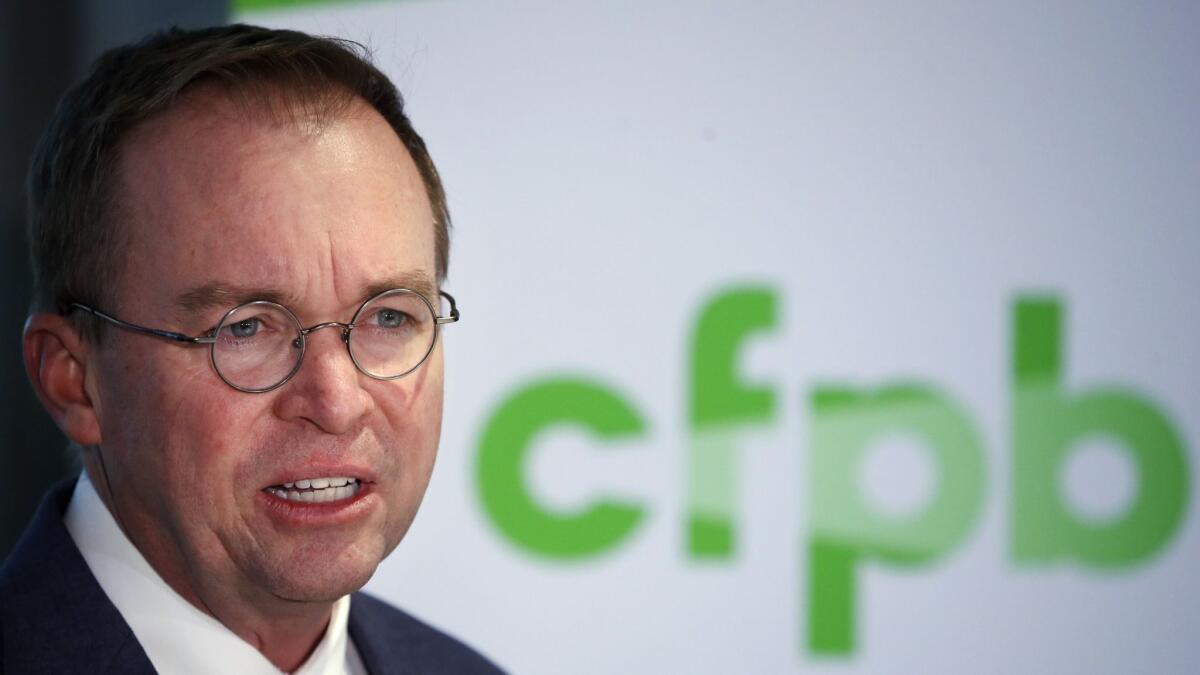Home>Finance>Who Does An Agent Represent During The Solicitation Of Insurance?


Finance
Who Does An Agent Represent During The Solicitation Of Insurance?
Modified: February 21, 2024
Learn about the role of an agent in insurance solicitation and who they represent. Find answers to your finance-related queries here.
(Many of the links in this article redirect to a specific reviewed product. Your purchase of these products through affiliate links helps to generate commission for LiveWell, at no extra cost. Learn more)
Table of Contents
- Introduction
- Definition of an Insurance Agent
- Overview of the Solicitation of Insurance
- Primary Parties Involved in the Solicitation Process
- Agents’ Representation of Insurance Companies
- Agents’ Representation of Policyholders
- Legal Responsibilities of Agents during Solicitation
- Ethical Considerations for Insurance Agents
- Conclusion
Introduction
When it comes to navigating the complex world of insurance, having a knowledgeable agent by your side can make all the difference. Insurance agents play a crucial role in the solicitation of insurance, acting as intermediaries between insurance companies and policyholders. They provide valuable information, guidance, and assistance throughout the insurance process, helping individuals and businesses make informed decisions about their coverage.
Understanding the roles and responsibilities of insurance agents in the solicitation process is essential for both policyholders and insurance companies. It determines who an agent represents and what their legal and ethical obligations are.
In this article, we will delve into the concept of insurance agents and examine their roles during the solicitation of insurance. We will explore who agents represent, the parties involved in the process, and the legal responsibilities and ethical considerations they must adhere to.
Whether you are seeking insurance coverage or simply interested in understanding the inner workings of the industry, this article will provide you with valuable insights and equip you with the knowledge to better navigate the world of insurance.
Definition of an Insurance Agent
An insurance agent is a licensed professional who acts as an intermediary between insurance companies and clients. Their primary role is to solicit, negotiate, and sell insurance policies on behalf of the insurance company they represent.
Insurance agents can work independently or as part of an agency, and they are typically skilled in various types of insurance, such as auto, home, life, health, and business insurance. They possess in-depth knowledge of the insurance industry, including policy coverage, terms, and conditions, helping clients choose the most suitable insurance plans based on their unique needs and circumstances.
To become an insurance agent, individuals must obtain the necessary licenses and certifications mandated by the state or country they operate in. Agents may need to pass exams and fulfill specific educational requirements to demonstrate their competence and commitment to the profession.
Once licensed, insurance agents can represent one or multiple insurance companies, acting as a liaison between the insurer and the policyholder. It’s important to note that insurance agents are not employees of the insurance company, but rather independent contractors operating within the legal framework set by their licensing authority.
Insurance agents also assume various responsibilities during the solicitation process, such as gathering client information, assessing risks, providing insurance quotes, explaining policy details, and assisting with claims. They play a vital role in ensuring that clients obtain the most appropriate coverage and receive the support they need when filing a claim.
Overall, insurance agents serve as a reliable source of expertise, helping clients navigate the complexities of the insurance industry and providing them with peace of mind knowing that they are adequately protected.
Overview of the Solicitation of Insurance
The solicitation of insurance refers to the process by which insurance agents actively reach out to potential clients, present insurance options, and facilitate the purchase of insurance policies. It is a crucial step in the insurance industry that allows individuals and businesses to obtain the necessary coverage for their specific needs.
Solicitation can occur through various channels, including direct sales, telemarketing, digital marketing, and in-person meetings. Insurance agents employ different strategies to raise awareness about insurance products and services, attract potential customers, and generate leads. They may leverage advertising campaigns, referrals, or partnerships with other businesses to expand their reach and attract a diverse clientele.
The solicitation process entails understanding the specific needs of clients, assessing their risk profiles, and recommending suitable insurance solutions. Insurance agents gather relevant information from clients, such as personal details, property information, and financial circumstances, to assess the risks they face and determine the appropriate coverage options.
Once the needs have been identified, insurance agents provide clients with comprehensive information about available insurance policies, including coverage limits, deductibles, exclusions, and premiums. They explain the terms and conditions of different policies, ensuring that clients fully understand the scope and limitations of the coverage being offered.
During the solicitation process, insurance agents play a crucial role in comparing insurance offerings from multiple companies, ensuring that clients receive competitive quotes and optimal coverage. They assist clients in analyzing different policy options, considering factors such as price, coverage benefits, customer service, and the financial stability of the insurance company.
Once an insurance policy is selected, insurance agents facilitate the application process, including the completion of necessary paperwork. They ensure that all required documents are accurate and submitted in a timely manner to initiate the underwriting process. Insurance agents also provide guidance on completing medical exams, inspections, or other assessments that may be required before finalizing the policy.
It is important to note that the solicitation of insurance is a regulated activity, governed by specific laws and regulations in each jurisdiction. Insurance agents must comply with legal requirements related to licensing, disclosure, privacy, and fair business practices, ensuring that clients receive transparent information and are treated ethically throughout the solicitation process.
In the next section, we will explore the primary parties involved in the solicitation of insurance and the representation roles played by insurance agents.
Primary Parties Involved in the Solicitation Process
The solicitation of insurance involves multiple parties who play distinct roles in the process. Understanding the relationship between these parties is essential for comprehending the dynamics of insurance solicitation. The primary parties involved are the insurance agents, insurance companies, and policyholders.
1. Insurance Agents: Insurance agents act as intermediaries between insurance companies and policyholders. They represent the insurance company’s interests while providing advice and guidance to the policyholders. Insurance agents are responsible for soliciting insurance, understanding clients’ needs, recommending suitable coverage options, and facilitating the purchase of insurance policies.
2. Insurance Companies: Insurance companies are the entities that underwrite and provide insurance policies. They design the coverage, set premium rates, and assume the financial risk associated with policy claims. Insurance companies appoint agents to sell their policies and expand their customer base. Agents represent the companies in the solicitation process and serve as the conduit between the insurer and the policyholder.
3. Policyholders: Policyholders are the individuals or entities seeking insurance coverage. They are the clients or customers of the insurance agents and the ultimate beneficiaries of the insurance policies. Policyholders rely on insurance agents to guide them in selecting the appropriate coverage and ensuring that their insurance needs are met.
It is important to note that insurance agents have different types of relationships with insurance companies. Some agents are captive agents who exclusively represent one insurance company. They have in-depth knowledge of that company’s policies and are dedicated to selling their products. On the other hand, independent agents or brokers work with multiple insurance companies, providing clients with a broader range of options to choose from.
The relationship between the parties involved in insurance solicitation is based on contractual agreements. Insurance agents enter into an agency agreement with the insurance company they represent, outlining the terms and obligations of both parties. Policyholders, likewise, enter into a contractual agreement with the insurance company when they purchase a policy. The insurance agent serves as the intermediary, facilitating the contractual relationship between the policyholder and the insurer.
In the next section, we will explore how insurance agents represent both insurance companies and policyholders during the solicitation process.
Agents’ Representation of Insurance Companies
Insurance agents act as representatives of the insurance companies they work with during the solicitation of insurance. They are authorized to sell policies on behalf of the insurer and are entrusted with promoting the company’s products and services to potential policyholders.
When agents represent an insurance company, they serve as its face and voice in the market. They are responsible for communicating the company’s values, strengths, and competitive advantages to potential customers. Insurance agents are trained to have a thorough understanding of the insurance company’s policies, underwriting guidelines, claims processes, and other key aspects of the business.
Insurance agents acting on behalf of insurance companies have several key responsibilities:
- Promoting Insurance Products: Agents play a vital role in marketing insurance policies offered by the insurance company they represent. They raise awareness about the company’s products and emphasize the benefits of obtaining coverage through their organization.
- Explaining Policy Details: Insurance agents are well-versed in the specifications of different insurance policies offered by their company. They educate potential policyholders on the coverage options available, policy terms and conditions, exclusions, deductibles, and any other relevant details.
- Providing Quotes: Agents provide potential customers with insurance quotes based on their unique needs and circumstances. They calculate premium rates, taking into consideration factors such as age, location, risk profile, and desired coverage limits.
- Facilitating Policy Purchases: Agents assist policyholders in completing the necessary paperwork and formalities to purchase the insurance policy. They guide clients through the application process and ensure that all required documents and information are provided accurately and in a timely manner.
Insurance agents representing insurance companies are expected to act in the best interests of the insurer. They are obligated to follow the company’s guidelines, processes, and protocols in the solicitation and sale of policies. Agents must ensure that the policies being sold meet the insurer’s underwriting standards and fulfill all necessary regulatory requirements.
Agents’ representation of insurance companies extends beyond the solicitation process. Even after the policy is purchased, agents continue to support policyholders by addressing their inquiries, assisting with policy renewals, and facilitating communication between the policyholder and the insurance company. They serve as a valuable resource for policyholders throughout the duration of their coverage.
Next, let’s explore how insurance agents also represent the interests of policyholders during the solicitation process.
Agents’ Representation of Policyholders
In addition to representing insurance companies, insurance agents also act as advocates for policyholders during the solicitation process. While agents have a fiduciary duty to the insurance company, they also have a responsibility to act in the best interests of their clients, the policyholders.
When representing policyholders, insurance agents have several key responsibilities:
- Understanding Policyholders’ Needs: Agents take the time to understand the unique insurance requirements of each client. They gather information about clients’ assets, liabilities, risk tolerance, and specific coverage needs. This allows agents to recommend suitable insurance options that address policyholders’ specific risks and concerns.
- Educating Policyholders: Insurance can be complex, with varying terms, coverage limits, and conditions. Agents help policyholders make informed decisions by explaining policy details in a clear and accessible manner. They ensure that policyholders understand the coverage being provided, including any limitations or exclusions.
- Providing Guidance on Coverage Selection: Agents assist policyholders in selecting the most appropriate insurance coverage based on their unique circumstances and needs. They use their expertise to match policyholders with insurance products that offer adequate protection while considering factors such as affordability and desired coverage limits.
- Negotiating with Insurance Companies: When policyholders have specific requirements or unique circumstances, agents can advocate on their behalf. This may involve negotiating with insurance companies to secure customized coverage or competitive premiums that align with the policyholders’ needs.
- Assisting with Claims: Insurance agents play a crucial role in helping policyholders navigate the claims process. They guide policyholders in filing claims, assist with gathering supporting documentation, and facilitate communication between the policyholder and the insurance company. Agents aim to ensure that policyholders receive fair and timely claims settlements.
Agents representing policyholders establish a relationship of trust and transparency. They provide ongoing support and assistance to policyholders as their needs evolve over time. Whether it’s making changes to coverage, addressing concerns, or helping policyholders understand modifications to their policies, agents are there to provide guidance and expertise.
It is important for policyholders to maintain open communication with their insurance agents, as they are the primary point of contact when it comes to insurance-related matters. Policyholders should feel comfortable reaching out to their agents to discuss any changes in their circumstances, ask questions, or seek advice on their insurance needs.
By representing the interests of policyholders, insurance agents ensure that individuals and businesses receive the appropriate coverage, support, and peace of mind that insurance provides.
In the next sections, we will explore the legal responsibilities and ethical considerations that agents must adhere to during the solicitation process.
Legal Responsibilities of Agents during Solicitation
Insurance agents have important legal responsibilities that they must uphold during the solicitation process. These obligations are in place to protect both the policyholder and the insurance industry as a whole, ensuring fair and ethical practices in the sale of insurance policies.
Here are some key legal responsibilities of insurance agents:
- Licensing and Compliance: Insurance agents are required to obtain the necessary licenses and certifications mandated by the regulatory authorities in their jurisdiction. They must comply with all applicable laws, regulations, and industry standards related to insurance solicitation.
- Fair and Honest Practices: Agents must engage in fair and honest practices when soliciting insurance. This includes providing accurate and transparent information to clients, avoiding misleading statements or misrepresentation of policies, and acting in the best interests of the policyholder.
- Proper Documentation: Insurance agents are responsible for ensuring that all necessary documentation, applications, and forms are properly completed, accurate, and submitted in a timely manner. Failing to do so may result in delays or potential legal consequences for policyholders.
- Duty of Care: Agents have a duty of care to their clients, which means they must exercise skill, care, and diligence when providing advice and recommendations. This includes assessing the client’s needs, understanding their risk profile, and recommending appropriate coverage options.
- Confidentiality and Privacy: Agents are entrusted with sensitive personal and financial information from clients. They have a legal obligation to handle this information with utmost confidentiality and to abide by privacy laws and regulations when collecting, storing, and sharing personal data.
- Avoiding Conflicts of Interest: Insurance agents must avoid conflicts of interest that could compromise their ability to act in the best interests of the policyholder. They should disclose any potential conflicts and take appropriate steps to address them transparently and ethically.
Non-compliance with legal responsibilities can have serious consequences for insurance agents, including fines, license revocation, and reputational damage. Therefore, it is crucial for agents to stay updated on regulatory changes, undergo ongoing training, and adhere to the highest ethical standards.
Policyholders should be aware of their rights and understand the legal protections afforded to them when dealing with insurance agents. It is important to seek clarification on any aspects of the insurance policy or the solicitation process that are not understood, and to raise concerns if there are any suspicions of improper or illegal practices.
Next, we will explore the ethical considerations that insurance agents should take into account during the solicitation process.
Ethical Considerations for Insurance Agents
Ethics play a crucial role in the insurance industry, and insurance agents are expected to uphold high ethical standards during the solicitation process. Acting ethically ensures the fair treatment of clients, fosters trust in the industry, and upholds the integrity of the insurance profession. Here are some key ethical considerations for insurance agents:
- Transparency and Honesty: Insurance agents should be transparent and honest in their interactions with clients. This includes providing accurate and clear information about policy terms, coverage options, premiums, and any potential limitations or exclusions. Honesty builds trust and helps clients make informed decisions.
- Fiduciary Duty: Agents have a fiduciary duty to act in the best interests of their clients. This means putting the policyholder’s needs before their own or the insurance company’s. Agents should recommend the most suitable coverage based on the client’s specific circumstances, rather than being driven solely by their own financial gain.
- Conflicts of Interest: Insurance agents must be mindful of potential conflicts of interest and act in ways that do not compromise their professional judgment or their ability to provide unbiased advice. Agents should disclose any conflicts and take appropriate steps to mitigate them in order to protect the interests of policyholders.
- Respect for Privacy: Agents should respect the privacy and confidentiality of their clients. They must handle personal and financial information with utmost care and ensure compliance with applicable privacy laws and regulations. Agents should only use client information for legitimate business purposes and obtain consent when necessary.
- Continuing Education: Ethical insurance agents are committed to continuous learning and professional development. They stay updated on industry trends, regulatory changes, and advancements in insurance products and services. This enables agents to provide the best possible advice and guidance to their clients.
- Professional Conduct: Insurance agents should adhere to professional codes of conduct and standards. They should conduct themselves with professionalism, integrity, and respect for their clients and colleagues. Agents should avoid engaging in unethical practices, such as misrepresentation, coercion, or discriminatory practices.
- Clear Communication: Effective communication is key to ethical insurance solicitation. Agents should ensure that clients fully understand the terms and conditions of the insurance policy being offered. This includes explaining potential risks, limitations, and any exclusions that may apply to the coverage.
By adhering to these ethical considerations, insurance agents can build strong and trusted relationships with their clients. Ethical conduct not only benefits policyholders but also enhances the reputation of insurance agents and the industry as a whole.
Insurance agents should regularly reassess their ethical practices and seek to uphold the highest ethical standards throughout their careers. The ethical conduct of agents is crucial in maintaining the trust and confidence of policyholders in the insurance industry.
Finally, let’s summarize the key points discussed in this article.
Conclusion
The solicitation of insurance is a complex process that involves various parties, including insurance agents, insurance companies, and policyholders. Insurance agents serve as intermediaries, representing both the insurance company and the policyholder during the solicitation process.
Agents have distinct responsibilities when representing insurance companies, including promoting insurance products, explaining policy details, providing quotes, and facilitating policy purchases. They act as the face of the insurance company, promoting its values and products to potential policyholders.
Simultaneously, insurance agents have a duty to represent policyholders’ interests. They must understand clients’ needs, educate them about policy details, recommend suitable coverage options, and assist with claims. Agents advocate for policyholders, ensuring they receive fair treatment and appropriate coverage.
Insurance agents are bound by legal responsibilities, including licensing and compliance, fair and honest practices, proper documentation, duty of care, confidentiality, privacy, and avoiding conflicts of interest. Upholding these responsibilities protects both policyholders and the integrity of the insurance industry.
Ethical considerations are also crucial for insurance agents. Agents should act with transparency, honesty, and professionalism. They must prioritize the best interests of their clients, respect privacy, disclose conflicts of interest, engage in ongoing education, and maintain clear communication with policyholders.
By fulfilling their legal responsibilities and adhering to ethical standards, insurance agents build trust, maintain integrity, and provide valuable guidance to policyholders throughout the solicitation process. Policyholders can rely on agents for expert advice, personalized coverage, and exceptional customer service.
In conclusion, insurance agents play a vital role in the solicitation of insurance, representing both insurance companies and policyholders. They are knowledgeable professionals who provide essential support, guidance, and expertise to ensure that individuals and businesses obtain the most suitable insurance coverage for their needs. By acting with integrity, fulfilling their legal responsibilities, and adhering to ethical standards, insurance agents contribute to a fair and trustworthy insurance industry.














